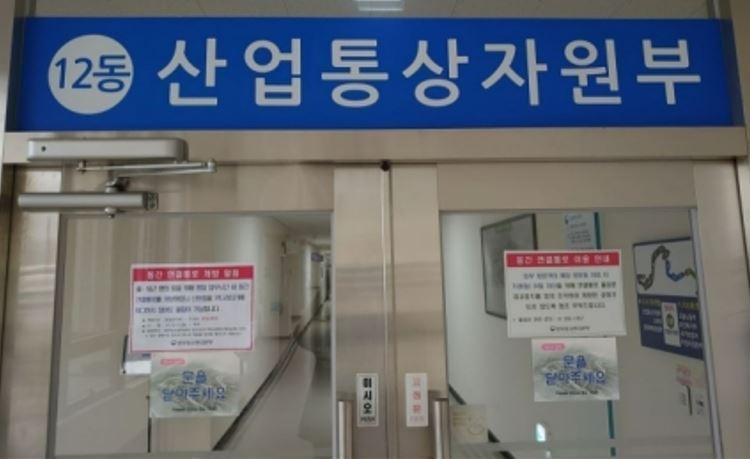 |
The Ministry of Trade, Industry and Energy at Government Complex Sejong (The Korea Herald) |
SEJONG -- South Korea’s chipmakers are likely to suffer losses from US sanctions against the Chinese semiconductor industry, as Korea has invested far more in China than the US, an opposition lawmaker said Monday.
According to data handed over to Rep. Kim Hoi-jae of the Democratic Party of Korea by the Ministry of Trade, Industry and Energy, Samsung Electronics invested $3.8 billion in the US market between 1997 and 2020.
This was equal to just 22.2 percent of the chipmaker’s investment in China, which was $17.1 billion over the corresponding period.
Samsung has continued to expand its expand investment in China, which includes setting up assembly lines or sales units in cities such as Suzhou, Shanghai and Xian.
Though Samsung established assembly lines in Austin, Texas, and a sales unit in San Jose, California, its investment scale in the US is smaller than in the Chinese market.
SK hynix, which has no factory in the US, has China as its only foreign investment destination, with a total of $24.9 billion.
The company, which established a D-RAM factory in Wuxi in 2005, expanded production facilities in the city in 2019. It also set up a processing plant in Chongqing in 2013.
Though SK hynix is planning to establish a research and development center in San Jose in 2026, its details of its plan for a production factory in the US have yet to be unveiled.
The Biden administration has recently publicized its move to restrict international shipments of semiconductor-related equipment to China.
While the Chinese units of Samsung Electronics and SK hynix have been given a one-year grace period from being subject to the sanctions, these units may also undergo difficulties in upgrading equipment in the medium term.
Researcher Kim Yang-paeng was quoted by a news outlet, as saying that local chipmakers “have concentrated on their investments in China as the country showed the highest demand for Korea’s semiconductor products.”
But he predicted that the supply chain for processing equipment in the units of Samsung and SK will suffer problems after the grace period.
Further, worries are growing over the possibility that trade conflict between the US and China will aggravate in the wake of the appointment of Xi Jinping to lead the country for a third term.
In a recent speech, Xi pledged to accelerate investment in core technologies, hinting that China would not yield to the US in the trade conflict.
Meanwhile, Korea’s battery producers, such as LG Energy Solution, SK on and Samsung SDI, are also projected to see damages from the US Inflation Reduction Act. This law stipulates that electric vehicles should be powered by batteries produced in North America to satisfy the state subsidies requirement.
Rep. Kim called for the government to continue to protest the US’ discriminative measures over semiconductors and secondary batteries by conducting more active commerce policies in a bid to secure the value of Korean businesses’ huge investments.
By Kim Yon-se (
kys@heraldcorp.com)








![[Today’s K-pop] Blackpink’s Jennie, Lisa invited to Coachella as solo acts](http://res.heraldm.com/phpwas/restmb_idxmake.php?idx=644&simg=/content/image/2024/11/21/20241121050099_0.jpg)